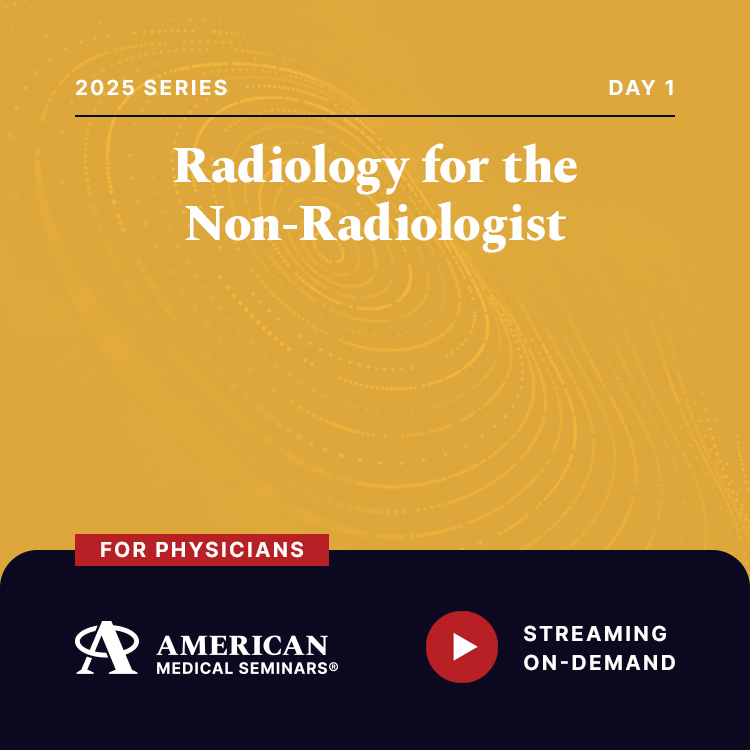Product Description
CME Sponsors: American Medical Seminars, Inc.
Activity Title: Radiology for the Non-Radiologist – Day 1
Recorded Dates: 4/15/2024
Original Release Date: July 1, 2025
Expiration Date: July 1, 2028
Presenting Faculty: Ryan J Smith; Adam R Guttentag;
Abdominal Radiography
Attendees of this presentation should be able to:
- Determine when abdominal radiographs are appropriate in evaluating patients with abdominal pain.
- Establish a pattern for evaluating plain radiographs of the abdomen.
- Distinguish normal from abnormal bowel gas patterns.
Site-Specific Approach to Abdominal Pain
Attendees of this presentation will be able to:
- Formulate a focused differential diagnosis based on the location of the patient’s abdominal pain.
- Order appropriate radiographic studies based on the location of the patient’s presenting symptoms and using the
American College of Radiology Appropriateness Criteria.
- Analyze imaging studies and recognize the findings of common causes of abdominal pain.
Radiology of the Pleura: Effusion, Pneumothorax, and More
Attendees of this presentation will be able to:
- Detect pleural effusion on a chest radiograph in its various manifestations.
- Review evidence-based factors that distinguish exudative from transudative pleural effusion.
- Distinguish pneumothorax from other findings that may simulate it on a chest radiograph.
MRI of Large Joints: Knee, Shoulder, and Hip
Attendees of this presentation should be able to:
- Recognize commonly used terminology in radiographic reports related to musculoskeletal MRI.
- Differentiate when to order shoulder MRI with and without arthrography.
- Discuss when evidence-based guidelines support the use of Ultrasound in rotator cuff evaluation.
- Integrate MR imaging appropriately into the evaluation of patients with symptoms of large joint pathology.
Pulmonary Nodule: Evaluation and Follow-Up
Attendees of this presentation will be able to:
- Evaluate pulmonary nodules using a variety of radiographic techniques.
- Assess pulmonary nodules for features that reliably exclude malignancy.
- Use evidence-based guidelines regarding appropriate intervals for nodule follow-up
- The receipt for any incentive-associated purchase will designate the value of the gift card separately from the cost of the learning activity.
- This incentive may have implications on your tax reporting obligations. Any reimbursed amount must be declared as personal income for tax purposes.


